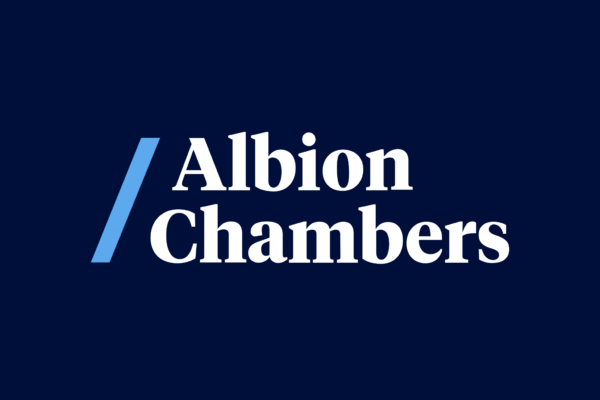Useful for: Recovering pre-inquests costs in a civil claim, even when a Part 36 offer has been made prior to those costs being incurred.
Summary
In cases where liability has not been admitted by a Defendant, the costs of an inquest can be recovered through civil proceedings. The recent judgment of Briley & Ors v Leicester Partnership NHS Trust & Ors [2023] EWHC 1470 (SCCO), confirms that even where an inquest does not proceed, pre-inquest costs are recoverable by Claimants when liability has only been admitted by a Defendant after those costs had been incurred.
Factual background of Briley & Ors
On 28 December 2016 Amanda Briley died having been in the care of Leicester Partnership NHS Trust (the First Defendant) at the time of her death. Following her death, a serious incident investigation was conducted which identified several failings (1). The panel conducting the serious incident investigation found that Ms Briley’s stay at the Bradgate Mental Health Unit was the root cause of the incident which led to Ms Briley’s death. As a result of the conclusions of this investigation, an inquest was to be conducted.
The Claimants (family members of the deceased) initiated civil proceedings against the Defendants seeking declaratory relief and damages. Following extensive disclosure from the Defendants and resulting negotiations between the parties, the Defendants made a Part 36 offer which was ultimately accepted by the Claimants. In addition to this, the Defendants admitted liability in respect of all causes of action and agreed commitment in respect of the Claimants’ involvement in learning future lessons. By virtue of this, the matter did not proceed to an inquest.
On 21 September 2020 Costs Judge James heard oral argument regarding the pre-inquest costs incurred by the Claimants and handed down his judgment on 9 June 2023 (the “Judgment”).
In allowing the Claimants costs, Costs Judge James found that pre-inquest costs are in principle recoverable, stating that ‘They are relevant to issues in the civil claim so as to be recoverable as costs in that claim’ (2).
Submissions
Within the Judgment, the submissions made by the Claimants and the Defendants focused on the hourly rates charged by the Claimants’ legal team, Bhatt Murphy (referred to in the Judgment and this article as ‘Point 4’)(3), and the legal costs incurred during the pre-inquest review hearings (‘Point 6’).
In respect of Point 4, the Defendants argued that the Claimants had claimed excessive hourly rates throughout. In particular, they disputed that it was reasonable for the Claimants to have instructed Bhatt Murphy, a firm based in Dalston (London 3), when they were based in Leicester. In response, the Claimant’s submitted that they were referred to Bhatt Murphy by the charity INQUEST and chose to proceed and instruct them on the basis of their expertise of deaths in state care. They took issue with the suggestion that a local firm could have handled the matter. Regarding the hourly rates, they submitted that these were not disproportionate in the context of the value of the claim as a whole (and indeed the ultimate settlement figure).
In respect of Point 6, the Defendants argued that,
‘The legal costs in this matter spiralled out of all context with the value of the claim, before the Defendants even had an opportunity to address the civil claim facing them; the Claimants’ Solicitors were said to have provided a ‘platinum legal service’ to the Claimants, including what is described as a ‘weighty legal presence’ throughout the Inquest process, whilst incurring an ‘eye-watering’ legal spend without regard to consideration of proportionality, adding that, no doubt if the Inquest costs had been incurred the legal costs would have been significantly higher still.’
In response, the Claimants submitted that the lines of enquiry pursued in the pre-inquest stages were entirely appropriate. Furthermore, they asserted that all of the evidence obtained in the course of the inquest proceedings was relevant and was used by the Claimants in the civil claim.
Impact of Briley & Ors v Leicester Partnership NHS Trust & Ors
The Court found that it was objectively reasonable for the Claimants to have instructed Bhatt Murphy. Costs Judge James accepted that this was a specialised area of law and noted that he was presented with no evidence that a more local firm could have run the case at a lower hourly rate. Furthermore, the Judge found that in order for the Claimants, in the context of this case, to establish the full extent of Ms Briley’s suffering they had to ‘press on’ with the work conducted at the pre-inquest reviews and indeed only received a full admission at a much later date. Furthermore, the Court concluded that it was reasonable, proportionate and of use and benefit to the civil claim for both Counsel and instructing Solicitor to attend the pre-inquest review hearings.
It is clear from the Judgment that the factual context of Briley & Ors was viewed as complex and especially sad by the Court,
“In the context of the Claimants’ wish to get to the bottom of why such a vulnerable young person who had been making multiple ‘cries for help’ over the preceding months and years, and who seemed, based upon the background facts, to have had a reasonably clear pattern of harming herself at the first opportunity if her supervision levels should fall, had been put on such a low level of supervision hours before she died, I do not regard the costs as ‘eye-watering’ at all.” (4)
Despite its unique factual context, the Judgment can be compared to the earlier judgment in Greater Manchester Fire and Rescue Service v Veevers [2020] EWHC 2550 (Comm). In Greater Manchester Fire and Rescue Service, the High Court found that an indication to settle a claim by a Defendant (albeit in this case an appellant), did not amount to a formal admission of liability by the Defendant. As such, the Claimant (in this case the respondent) had been entitled to continue to incur legal costs related to the inquest as liability might still have been in issue.
Briley & Ors reiterates that, sometimes, it is advisable for Defendant to make an admission of liability at an early stage to avoid the Claimants incurring substantial pre-inquest costs. It is also a salient reminder that if a Part 36 offer is not accompanied by an admission of liability, it may still expose the maker to a costs risk prior to a formal admission of liability.
Conversely, on the Claimant side, it demonstrates the full scope of costs that can potentially be recovered by Claimants in the event of a pre-inquest settlement, and should give confidence to those who seek to instruct specialist solicitors in the field of civil claims arising from deaths.
Rachael Stitt
October 2023



